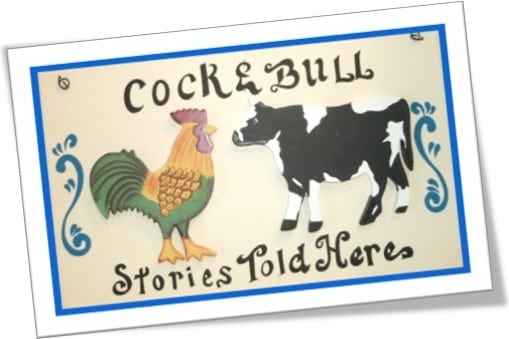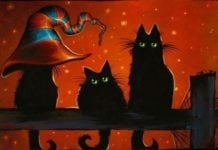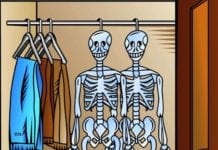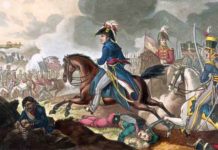Why do we say Good Health when we are about to drink alcohol, which is far from good for us? The answer lies in the 19th century and England’s second deadly outbreak of cholera between 1848 and 1849.
In August of 1849 cholera reached epidemic proportions in the Broad Street area of London resulting in 344 deaths in only four days. But there were almost none in any neighbouring areas.
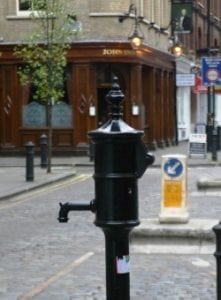
Local physician Dr John Snow suggested cholera was linked to people drinking polluted water and quickly proved this when he found that 87 victims out of the 89 he examined were known to have drunk water from the Broad Street well.
Snow famously called for the authorities to “take the handle off the Broad Street pump”, and almost immediately the outbreak was halted.
For a long while afterwards locals would avoid water and drink only ales and wines, knowing the boiling and fermenting process would kill any bacteria in the water used. When drinking they would greet each other with the phrase ‘in good health’, knowing they were safe from the disease.
The phrase, Pull Your Finger Out, is these days associated with encouraging someone to get a move on, or hurry up and complete a task more quickly than they are presently doing. Like so many English phrases it has a military or naval origin.
Loaded cannons would have gunpowder poured into a small ignition hole, which was then held in place with a wooden plug.
But in times of battle, when speed was of the essence, the powder would be pushed in and then held in place by a gun crew-member using his finger. Impatient artillerymen, anxious to fire their cannons at the advancing enemy, would shout at his crew-mate to ‘pull his finger out’ so that the gun could be fired.
It has not been recorded how many digits were lost on the battlefields.
To Face The Music has two possible origins. The first is that nervous (often terrified) actors and actresses, on an opening night, would have to go out on stage at the start of their performance and quite literally ‘face the music’ (as the orchestra pit sat directly in front of the stage with the musician facing the actors).
In this case ‘facing the music’ meant the actor actually went out and performed, rather than losing their nerve and bottling it.
The second and less likely origin, suggests that a dishonourable military discharge would always result in the disgraced serviceman being marched off barracks to the sound of drummers playing (drummed out), in which case he too had ‘faced the music’.
To be Dressed Up to the Nines means to be wearing our finest suit or evening gown. Some suggestions for the origin of this phrase lead us to tailoring and the belief that it takes nine yards of material to make the perfect three-piece suit.
But that seemed a little bit weak to me, so I looked further and found most sources insist it began as ‘dressed up to the eyes’, which has been corrupted over the years.
Still not convinced, I decided to work backwards and look for all the possible uses of the word ‘nine’, discovering a little gem in the process.
In the precious metals industry, the finest gold and silver are never classified as 100 per cent pure, but as 99.99 per cent; hence the finest metals are known as ‘the nines’ throughout the trade.
It is my belief that ‘being dressed up in your nines’ means to be wearing your finest jewellery. Further evidence to support this theory lies in the archive of the Royal Gloucester, Berkshire and Wiltshire Regimental Museum in Salisbury. Queen Victoria’s favourite regiment was the Wiltshire (Duke of Edinburgh’s) 99th Foot.
Stationed at Aldershot, they were always chosen to guard the Royal Pavilion in Brighton, consequently becoming known as ‘the Queen’s Pets’.
The officers’ dress code included an unusual amount of gold lace on their uniforms; hence they were regarded as being ‘dressed up in their nines’ for royal duty.
A Dead Ringer – is a well-known phrase for somebody who looks just like another. In medieval Britain the medical profession was not quite as refined as it is now, and often anybody found not to be breathing was regarded as dead, when they may have been simply unconscious. (And this was also before comas were fully understood).
It was not uncommon for bodies to be later exhumed and corpses found with their fingers worn to the bone, an obvious indication somebody had returned to life and tried to claw their way out of a coffin.
So horrific was this image that the English gentry began mistrusting medical opinions and buried their loved ones with string attached to their wrists, connected to a bell above the grave.
Those employed to sit overnight and listen out for the bells were known to be working the Graveyard Shift.
Anybody who returned to life and found themselves prematurely buried could attract attention by ringing the bell and it has been recorded this actually worked. Many ‘bodies’ were exhumed after bells were rung and some people carried on with their normal lives.
But when spotted in the street startled acquaintances would cry to each other ‘That looks just like ‘Jack Jones’ – I thought he was dead’ to which they would receive the reply, ‘Yes, he must be a dead ringer’.
And that, believe it or not, is true.
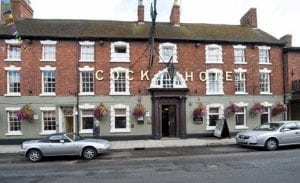
A Cock and Bull story is likely to untrue and without any real facts supporting it. Imaginative claims that are made without any supporting evidence are usually dismissed as such and some suggest it originates from old fables in which animals speak to each other.
There is, however, a much more reliable source for this phrase. Stoney Stratford is a Buckinghamshire town located almost directly halfway between London & Birmingham and Oxford & Cambridge respectively.
During the great coaching era of the late 18th and early 19th century the town was an important and vibrant stop over point for travellers, tradesmen and mail coaches.
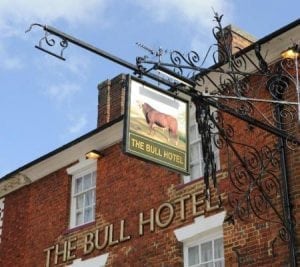 The two main coaching inns in town were called The Cock and The Bull and both became known throughout the country as the center of all news travelling either on foot or by horse.
The two main coaching inns in town were called The Cock and The Bull and both became known throughout the country as the center of all news travelling either on foot or by horse.
Both Inns, competing for national acclaim, established a rivalry over which could produce the most exciting and scurrilous travellers tales to be passed onto to the major cities and as a result many unbelievable stories were dismissed as Cock and Bull tales.
The Cock and The Bull Hotels still stand today at the center of Stoney Stratford and I have a few stories from both of them that are hard to believe. – Albert Jack
Albert Jack AUDIOBOOKS available for download here

Shaggy Dogs & Black Sheep

